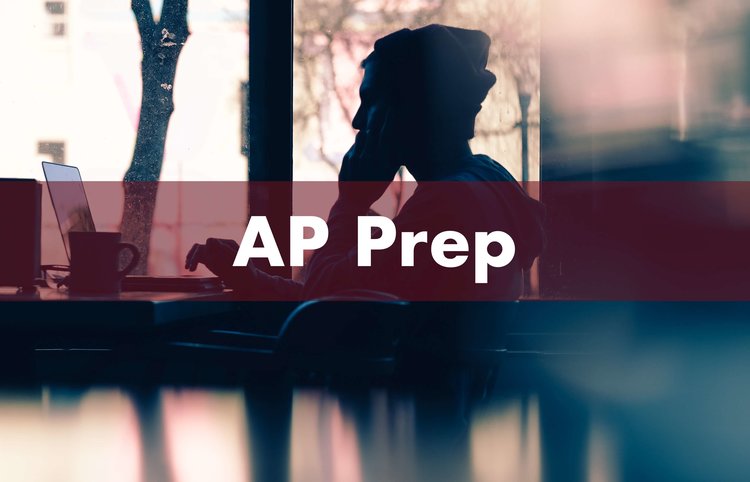Why Colleges are Looking for Students with Grit (and How to Be Gritty)
What is grit? I’ll get to that later. First, a preface:
Since November 2017, I have read applications for an honors program at a prestigious American university. This is my first time serving on any kind of admissions committee.
It’s worth noting that I am not a general admissions officer. Unlike those in general admissions, I am not combing through thousands of applicants, filtering students for standardized test scores and GPAs. Instead, I’m working my way through about 200 applications for a very small cohort of students. My focus is not on the hard numbers (others are taking care of that) but on substance: a student’s extracurricular involvement, signs of maturity and leadership, writing ability, creativity, and fit.
I’m still learning what makes a strong applicant, what exactly makes one applicant stand out while others don’t. But in my brief admissions experience, I can attest to the value of “grit,” a term that, for me, is nearly synonymous with narrative.
Most applicants need to tell a convincing story. Allow me to illustrate.
Candidate #1 has taken as many AP classes as possible at his prestigious high school. His parents are a university professor and a mechanical engineer. The candidate plans to double major in mechanical engineering and physics. He has a 1570 SAT score and a 4.0 unweighted GPA, founded a successful technology company, captains his high school soccer team, and is class president. His essays detail success after success, including his contributions to a Fortune 500 boardroom meeting. Everything this candidate touches turns to gold.
Candidate #2 has taken all of the four AP courses offered at her small high school in a rural town. The candidate plans to double major in biology and English with the goal of going to medical school. She has a 1480 SAT score, a 3.8 unweighted GPA, is the president of an organization devoted to teaching young girls how to code, and is involved in several other school organizations. Her essays include stories about her growth since her parents’ divorce and how she dealt with embarrassment following a failed speech she delivered while running for class president.
Both of these are very strong candidates. Of course, there are layers to each of these applications that we don’t have space to get into here, but which of these two candidates do you think I and other admissions readers are more excited about?
Though an Excel spreadsheet might be thrilled by candidate #1, most human readers will feel more compelled by #2. She has excellent grades and extracurricular involvement, though not quite as superb as #1.
Sure, candidate #1 is a star, and he will get into all or most of the universities he applies to. But candidate #2 has a story: she’s a fighter. I’m excited to meet her. I’m excited to see her growth in college, and I’m pulling for her to succeed.
For me, though both are strong writers, the narrative of growth detailed in candidate #2’s essays is far more compelling than the repeated success described by candidate #1.
Don’t get me wrong; candidate #1 is an admissions dream. His numbers are stellar and his writing is strong. But I get no sense from candidate #1 that he’s had to struggle to get to where he is. So, while he is undeniably gifted, his application leaves me wondering: what will happen when this student has to deal with failure? I’m not sure. And I’m not uniquely invested in watching his growth because it seems as if he’s pretty close to the mountaintop already. Without a narrative progression—from failure to success, from ignorance to knowledge—I don’t feel particularly compelled by this candidate’s story.
Candidate #2 tells me exactly what will happen when faced with failure. She’ll feel defeated momentarily, but she’ll get back up in a day or two and fight. In other words, she has that ill-defined quality that admissions officers love: grit.
Grit isn’t simply a matter of facing adversity. According to University of Pennsylvania psychologist Angela Duckworth, author of Grit: The Power of Passion and Perseverance, grit means, among other things, persistence.
“Grit is passion and perseverance for very long-term goals,” Duckworth explains in her 2013 TED talk. “Grit is having stamina. Grit is sticking with your future, day in, day out, not just for the week, not just for the month, but for years, and working really hard to make that future a reality. Grit is living life like it's a marathon, not a sprint.”
According to Duckworth’s psychological studies, grit is a more reliable predictor of future success than SAT scores, IQ scores, or academic pedigree. In fact, grit, according to Duckworth, “is usually unrelated or even inversely related to measures of talent.” In other words, talent has much less to do with success than perseverance and passion do.
This explains why candidate #2 is, to me, much more compelling than candidate #1. Candidate #1 portrays himself as naturally gifted, a prodigy. But I’m more convinced that candidate #2 will thrive in the face of challenges she will face in her academic and professional life.
My point in introducing these two candidates is to illustrate that a “gritty” narrative can go a very long way in getting colleges excited about your potential. If you have a 4.0 unweighted GPA, a 1570 SAT score, a stellar record of extracurricular activities and AP classes, then you don’t need all that much help getting into your university of choice. But if, like most applicants, you have some relative weaknesses in your application, then you need to focus on establishing the “grit” necessary—and a narrative to match—to make you a competitive applicant.
So, how can you be gritty? Find something you’re passionate about. Pursue that passion with as much energy as you can muster. Face difficulties with as much perseverance as you can. While you might face failure in the short term, colleges are confident that grittiness, more than apparent genius, will pay off in the long run.
Whether you fail, succeed, or are midway through your journey, be sure to relay those stories—rather than static portrayals of unending success—in your college applications. It just might be what gets you into college.
___
Want to know if you’re gritty? Test yourself with Angela Duckworth’s Grit Scale.
Stephen P. is a writer and teacher based in Los Angeles. He has taught literature and writing courses at several universities and has taught writing and reading at Elite Prep Los Angeles since 2010.










